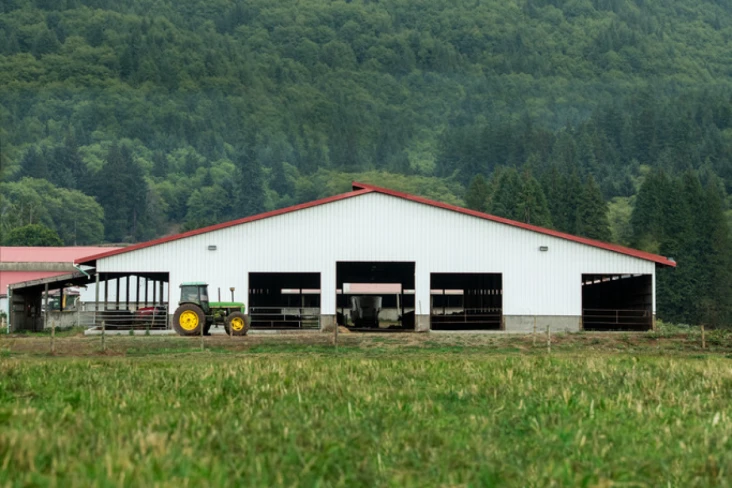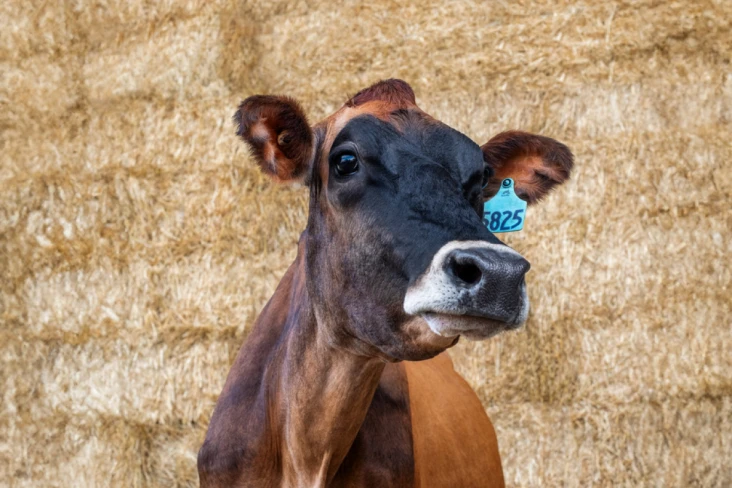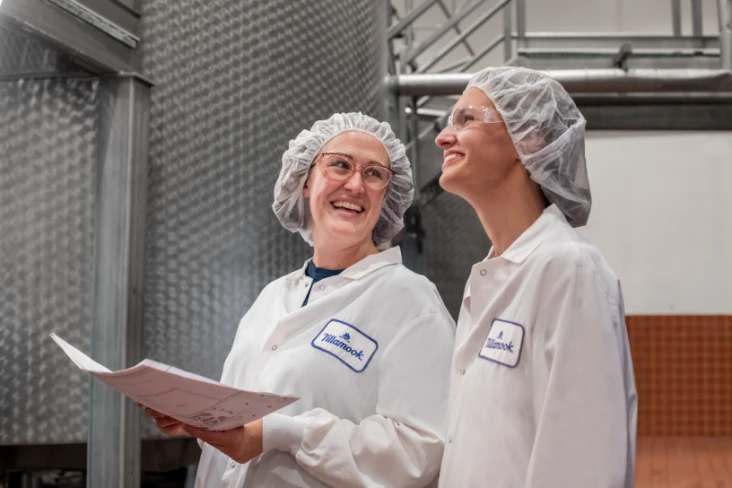At Tillamook County Creamery Association (TCCA), we, like most businesses, see financial and economic performance as a high priority. However, when the founders of TCCA created the cooperative in 1909, they recognized not only an opportunity for market access and to grow a business, but also an opportunity to offer economic stability for a growing community. When our communities are strong, we are strong. Financial success for TCCA means we are better equipped to support our local communities and our farmer-owners. Every year, our board reinvests our earnings in three ways: distributed to farmer-owners, reinvested into the business, and invested into the community. Our strategic approach to economic performance is widely recognized by industry leaders as a sustainable approach to business.
“You should not be trying to keep your company in business; you want to be planning for keeping your company adapting and evolving.”
–Jennifer Harrison, Ph.D., Environmental Science
“Sustainable practices make you an incredibly resilient company.”
–Suzanne Lindsay-Walker, Director of Sustainability, Kroger
Strategy and Planning: We conduct operational and financial planning such as annual budgeting, forecasting and development of organizational objectives and key results (OKRs) on a short-term time horizon of one to 24 months. We also conduct strategic and capital planning over a five-year timeframe. While most of our operational, financial, strategic, and capital planning is done over short- and medium-term timeframes, we also have a five-year strategic, long-range plan directed by our executive team and approved by our board of directors. We conduct annual refreshes of this Strategic Plan in order to keep our assumptions up to date as well as to be able to make decisions based on the most up to date information.
In 2019, our organizational objectives were as follows:
Drive growth in our base business through increasing accessibility and creating consumer demand that drives velocity and deepens consumer relationships
Leverage new products and channel expansion to reinforce our premium positioning, grow revenue, and contribute profit
Achieve efficiencies across the business, freeing up company resources to support growth and creating step-change improvement in profitability
Scale our One Team way of working, becoming even more nimble, entrepreneurial and effective as we grow larger
Foster an enriching and fulfilling culture, driven by our shared values, where each person feels valued and connected to a strong sense of purpose
Activate our Stewardship across the company to boost TCCA delivery to our six stakeholder groups and enhance our brand
As a privately held cooperative, we have chosen to maintain confidentiality and omit the disclosure of any financial goals and performance metrics.
Further, our structure as a farmer-owned cooperative allows us to dedicate resources and planning capacity to long-term strategies and objectives. We are not solely driven by quarterly earnings and creating shareholder value, which commonly causes publicly traded companies to operate with a short-term perspective. We take a generational approach, and our company strategy is to achieve long-term revenue and profit growth by offering differentiated branded products of the highest quality, serving as value-added partners for our retailers and building deep connections with our consumers.
Key Players: Our strategies and long-term objectives are set and directed by the executive team with input and influence from the board of directors. Our Chief Financial Officer is responsible for maintaining oversight of the financial and budgetary functions within these strategies. The TCCA Stewardship and Engineering teams work closely with the Finance Department to identify and quantify potential financial risks associated with climate change and other environmental impacts.
TCCA is owned by a group of dairy farming families. As a farmer-owned cooperative and consumer packaged goods (CPG) brand, our relationship with these families is unique—the families are both the owners of the business and the suppliers of the milk for some of our products. A portion of our milk supply is purchased directly from TCCA farmer-owners at prices that fluctuate with changes in the global milk market. Our farmer-owners receive a distribution of earnings based on the company’s financial performance, measured by our income statement. The rest of our milk is procured from contract milk suppliers.
Milk is a global commodity with inter-related markets in North America, Europe and Oceania. Many things can impact the commodity price of milk, such as changes in supply conditions, government regulation or consumer demand. Additionally, supply conditions can be affected by severe weather events in dairy regions, feed prices, and farm margins. This volatility of milk pricing can significantly affect business viability for dairy farmers. We pay a premium above the commodity price to our TCCA farmer-owners, which helps
ensure a stable and viable income source for them.
Over the past several years, TCCA’s business has become much larger, more diversified and more capable. 2019 marked the first full year of our national expansion growth strategy to bring Tillamook products to consumers across the entire United States. The strategy has yielded positive initial results and in 2019, our net sales were up 7.5 percent over prior year and more than 65 percent since 2012. Much of the growth achieved is due to expanded distribution in our cheese and ice cream businesses, healthier pricing and promotional activity and stronger customer relationships. Additionally, we invested in many new employees, new leadership and new functional positions—adding foundational skills to carry out our growth strategy. These investments were paired with an investment in capability building, specifically in Category Management, R&D, Sales, and Quality.
At TCCA, we prioritize potential risks and opportunities with our executive team and board of directors as part of our risk assessments, including regulation, technology, legal, market, reputational, acute physical, chronic physical, upstream and downstream. Multiple departments—such as Supply Chain, Finance, Quality, Sales and Stewardship—collaborate on weekly commodity risk assessments, monthly and quarterly financial assessments and annual emergency preparedness. We have also established a Business Resilience Team of cross-functional leaders to help respond to risks. This team helps manage extensive contingency plans and facilitates company-wide communication to help balance against unforeseen risks and scenarios.
TCCA strategically manages climate-related risks and opportunities. Risk and identification process review has revealed that our headquarters is in a geologically active area, subject to earthquakes, windstorms, floods and tsunamis. TCCA has taken many precautions related to engineered design and construction to mitigate the effects of some of these natural forces, including earthquake construction precautions.
As part of our climate-related risk assessment, we have considered risks associated with current and emerging regulation (such as carbon taxes, cap and trade schemes, fuel and energy taxes, emission reporting obligations), technology risks (such as new equipment for emissions mitigation, renewable energy regulation), market risks (such as fluctuating socio-economic conditions, changing consumer behavior), reputation risks, legal risks, supply chain risks (such as product efficiency regulations and standards) and physical risks (such as change in temperature extremes and sea level rise).

U.N. Sustainable Development Goals

Goal 1
End Poverty in All Its Forms Everywhere
We set our annual Community Enrichment investment as a percentage of total profits. The more TCCA increases financial performance, the better equipped we will be to support and develop local communities.
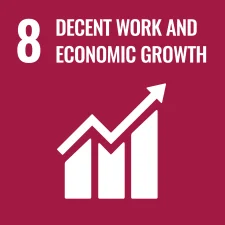
Goal 8
Promote Inclusive and Sustainable Economic Growth, Employment, and Decent Work for All
Our employees and our farmer-owners rely on the financial success of TCCA to support their income. Continued growth of the company allows us to provide more jobs for the local economies.
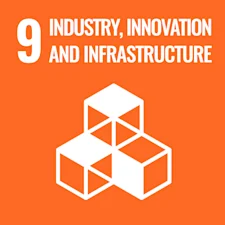
Goal 9
Build Resilient Infrastructure, Promote Sustainable Industrialization, and Foster Innovation
Investing in new research and technology allows us to maintain a competitive edge through innovation. Throughout our supply chain, there are multiple opportunities for investments in innovation.

Goal 13
Take Urgent Action to Combat Climate Change and Its Impacts
Climate change poses risks to the future and longevity of TCCA. Recognizing and quantifying these risks enables us to build a long term mitigation strategy.
